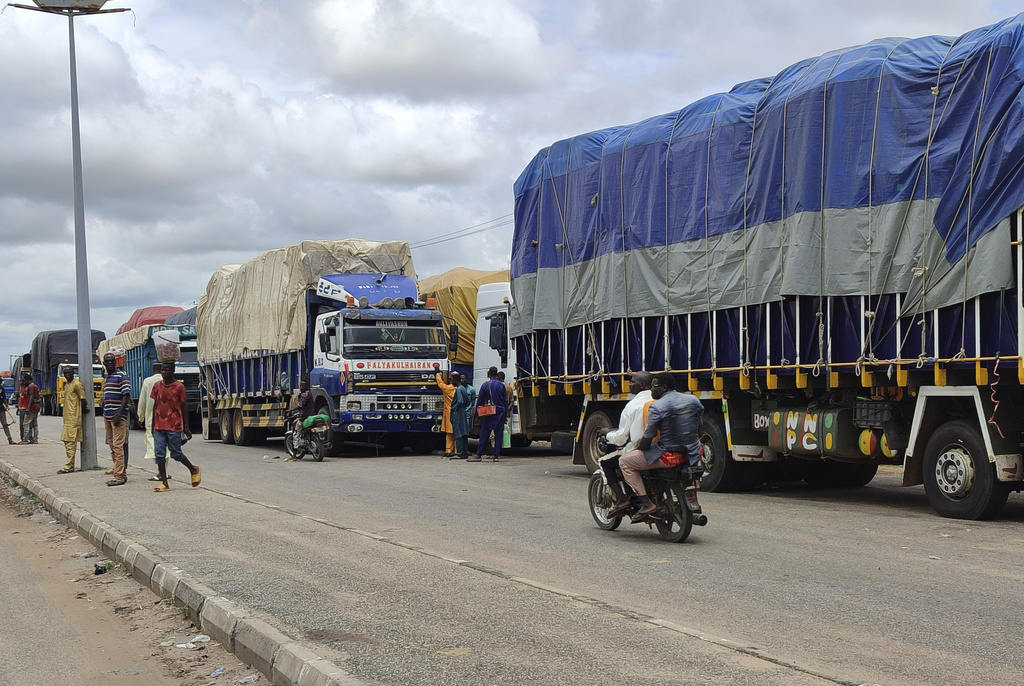ADF STAFF
Solidarity lives on both sides of the border between Nigeria and Niger, where most people belong to the Hausa ethnic group and cherish their historical and economic ties.
The specter of regional conflict has loomed since a military junta detained and ousted Nigerien President Mohamed Bazoum in late July.
Some in the Hausa community, an ethnic group that makes up more than half of Niger’s population and also are the dominant ethnic group in northern Nigeria, are looking for ways to use these ties to avoid conflict.
“We speak Hausa! We are from the same root,” Nigerien citizen Mallam Bukar told the Nigerian Tribune. “We practice the same religion and eat the same food.”
Since the coup, Hausa religious, government and civil society leaders have raised their voices in opposition to a military confrontation between neighbors that they say would further destabilize both countries, whose militaries already are spread thin fighting extremist militant groups.
In Kano, Nigeria, influential Islamic cleric Sheikh Muhammad bin Uthman wants to see Niger’s government returned to the hands of civilians, but he and many others are pushing for a diplomatic intervention.
“We the Muslims in the northern part of Nigeria abhor a military intervention in Niger because we are culturally and religiously united,” he told The Africa Report magazine.
The Hausa also are the most affected by sanctions imposed by the Economic Community of West African States (ECOWAS).
Trade along the 1,600-kilometer frontier largely has ground to a halt since the border was closed on ECOWAS’ orders in early August. More than 1,000 trucks carrying agricultural products have been stranded at border points, their cargo rotting.
Traders who cross the border regularly have been stranded, some unable to return to their families.
According to a study by the Central Bank of Nigeria, 75% of exports from Nigeria’s cross-border informal trade go to Niger. The bank’s last report in 2016 valued those goods at $934 million a year.
Nigerian President Bola Ahmed Tinubu has been seen as the driving force behind ECOWAS’ ultimatum for the Niger junta to restore Bazoum and the democratically elected government or face the possibility of military action.
Tinubu, who also is chairman of the West African regional bloc, has faced pushback from most Nigerian members of parliament who hail from the north.
On August 5, Nigeria’s Senate urged the government to look at “political and diplomatic options” instead of a military solution.
Junta leaders in Niger have rejected most offers to meet with diplomatic envoys, but some Hausa leaders were able to get through.
A group of Islamic scholars, most from northern Nigeria, visited Niger’s capital, Niamey, and spoke with coup leader Abdourahmane Tchiani on August 12.
“Both parties agreed to intensify the option of dialogue in resolving the political crisis,” the group said in a statement.
“While tracing the historical ties between the two nations, he [Tchiani] said Niger Republic and Nigeria were not only neighbors but brothers and sisters who should resolve issues amicably.”
Also on August 12, hundreds of people filled the streets of Kano, northern Nigeria’s largest city, to peacefully protest the idea of war with Niger. They chanted, “Nigeriens are our brothers; Nigerians are also our family; Niger is ours; we don’t want war.”
The anger on display in Kano could spread to other parts of the north, where seven of Nigeria’s 36 states border Niger. Tinubu and his new government already are dealing with rising frustration as the cost of living climbs.
Nnamdi Obasi, senior Nigeria advisor at the Crisis Group think tank, said there is more work to be done to persuade the Nigerien junta to negotiate an acceptable return to democracy.
“The sanctions and aid cuts will create a difficult situation in Niger and that is a recipe for instability,” he told The Financial Times newspaper. “The junta needs to be persuaded to show some flexibility to re-engage with the rest of the world rather than pursuing the isolationist path they seem to be toeing.”
In the meantime, the Hausa, on both sides of the border, are suffering the economic consequences of the coup.
Muawiya Ibrahim, a resident of Katsina, Nigeria, reported that the price of a 100-kilogram sack of corn rose 24% in a week and now costs about $56.
But he worries more about how the border closure has amplified divisions between the people on both sides.
“We shared so much; we even married amongst each other,” he told The Associated Press.
“To say Nigeria and Niger are one is true.”

